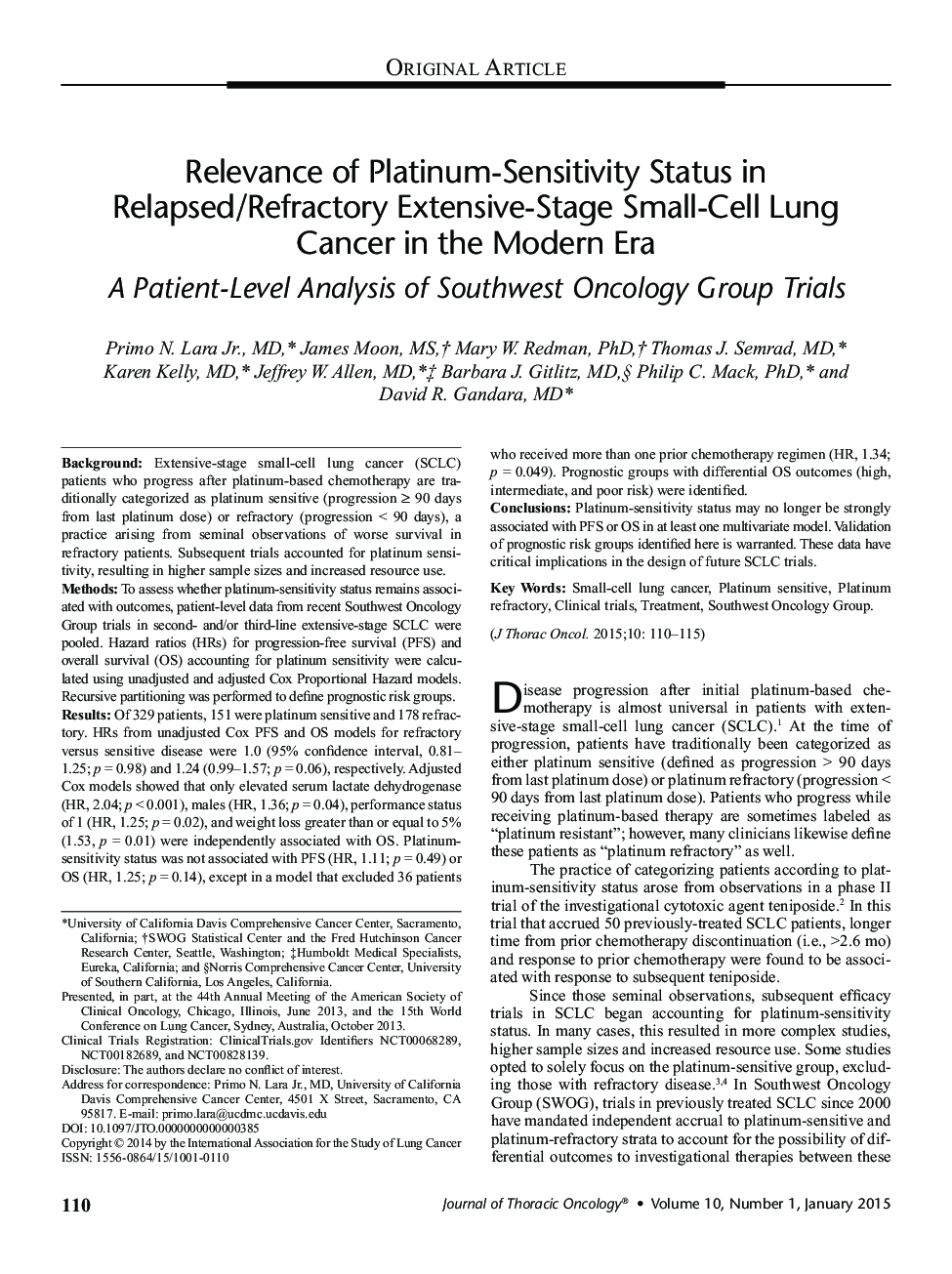| کد مقاله | کد نشریه | سال انتشار | مقاله انگلیسی | نسخه تمام متن |
|---|---|---|---|---|
| 6193270 | 1258701 | 2015 | 6 صفحه PDF | دانلود رایگان |
BackgroundExtensive-stage small-cell lung cancer (SCLC) patients who progress after platinum-based chemotherapy are traditionally categorized as platinum sensitive (progression ⥠90 days from last platinum dose) or refractory (progression < 90 days), a practice arising from seminal observations of worse survival in refractory patients. Subsequent trials accounted for platinum sensitivity, resulting in higher sample sizes and increased resource use.MethodsTo assess whether platinum-sensitivity status remains associated with outcomes, patient-level data from recent Southwest Oncology Group trials in second- and/or third-line extensive-stage SCLC were pooled. Hazard ratios (HRs) for progression-free survival (PFS) and overall survival (OS) accounting for platinum sensitivity were calculated using unadjusted and adjusted Cox Proportional Hazard models. Recursive partitioning was performed to define prognostic risk groups.ResultsOf 329 patients, 151 were platinum sensitive and 178 refractory. HRs from unadjusted Cox PFS and OS models for refractory versus sensitive disease were 1.0 (95% confidence interval, 0.81-1.25; p = 0.98) and 1.24 (0.99-1.57; p = 0.06), respectively. Adjusted Cox models showed that only elevated serum lactate dehydrogenase (HR, 2.04; p < 0.001), males (HR, 1.36; p = 0.04), performance status of 1 (HR, 1.25; p = 0.02), and weight loss greater than or equal to 5% (1.53, p = 0.01) were independently associated with OS. Platinum-sensitivity status was not associated with PFS (HR, 1.11; p = 0.49) or OS (HR, 1.25; p = 0.14), except in a model that excluded 36 patients who received more than one prior chemotherapy regimen (HR, 1.34; p = 0.049). Prognostic groups with differential OS outcomes (high, intermediate, and poor risk) were identified.ConclusionsPlatinum-sensitivity status may no longer be strongly associated with PFS or OS in at least one multivariate model. Validation of prognostic risk groups identified here is warranted. These data have critical implications in the design of future SCLC trials.
Journal: Journal of Thoracic Oncology - Volume 10, Issue 1, January 2015, Pages 110-115
